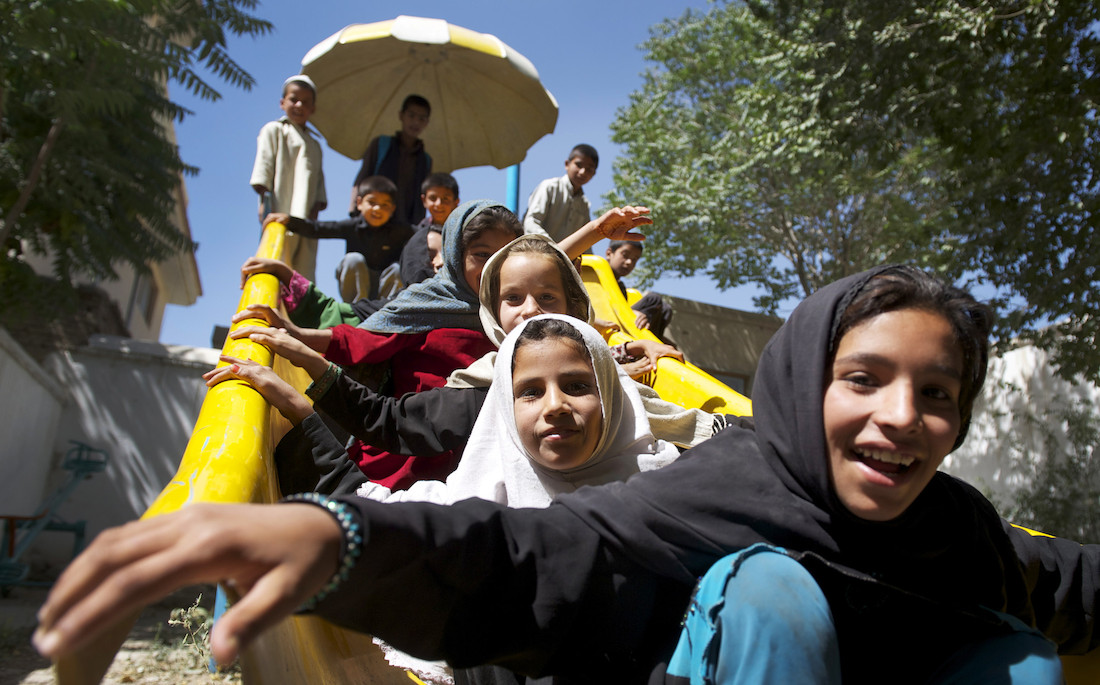Afghanistan
Children affected by conflict: 16 million
Budget spent: €191,745
Number of partner organisations: One
Number of projects: One
Total child participants: 475 (207 girls and 261 boys)
Total adult participants: 250 (200 women and 50 men)
The conflict and security situation in Afghanistan continued to deteriorate throughout 2016. During the final three months of the year it was calculated that more than a million people were “on the move” internally and across borders. This figure includes 400,000 undocumented returnees, 220,000 documented returnees (predominantly from Pakistan and Iran) and 400,000 internally displaced persons. This surge has been fuelled in part by the increase in human rights violations in neighbouring Pakistan.
This movement of people is a further source of instability in a country where some 3.5 million people are currently in need of emergency humanitarian assistance. More than half (57 per cent) of the affected population are children and almost a quarter (23 per cent) are women.
Highlights
We provided support to War Child UK for their education programmes with children in Kabul, with a particular focus on street-working children. Despite a challenging beginning resulting from difficulties in signing a MoU with the national educational ministry, the Community Based Early Childhood Care and Development and Accelerated Learning for Street-Working Children (ECCD) project was successfully implemented.

Relationships with key stakeholders - including the national Ministry of Education - were established to encourage the continuation of the project once War Child UK exits the country.
Challenges
Child labour remains widespread inside Afghanistan and country-wide instability provides a profound challenge to delivering humanitarian assistance. There is widespread concern that Afghanistan could face a further humanitarian crisis in 2017.
Projects
Community Based Early Childhood Care and Development and Accelerated Learning for Street-Working Children (ECCD): The project addressed the protection, education and psychosocial needs of 300 vulnerable children aged between four and six. In addition, 175 street-working children were also reached to help facilitate their re-integration into the formal school system. The project saw 300 children regularly attend classes from Saturday to Thursday for three hours each day. An external evaluation found that 71 per cent of these children displayed improved cognitive skills.
150 mothers of ECCD children and 100 other parents were trained on parenting skills and child protection issues through our Parents DEAL intervention. In addition, 10 volunteer teachers were trained and nine community-based child protection committees established over the course of the programme.